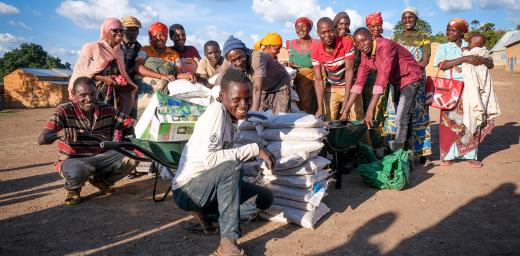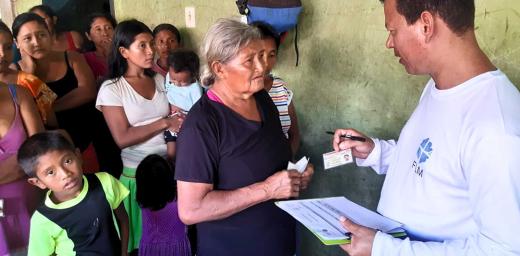Ethiopia: Support after locust plague
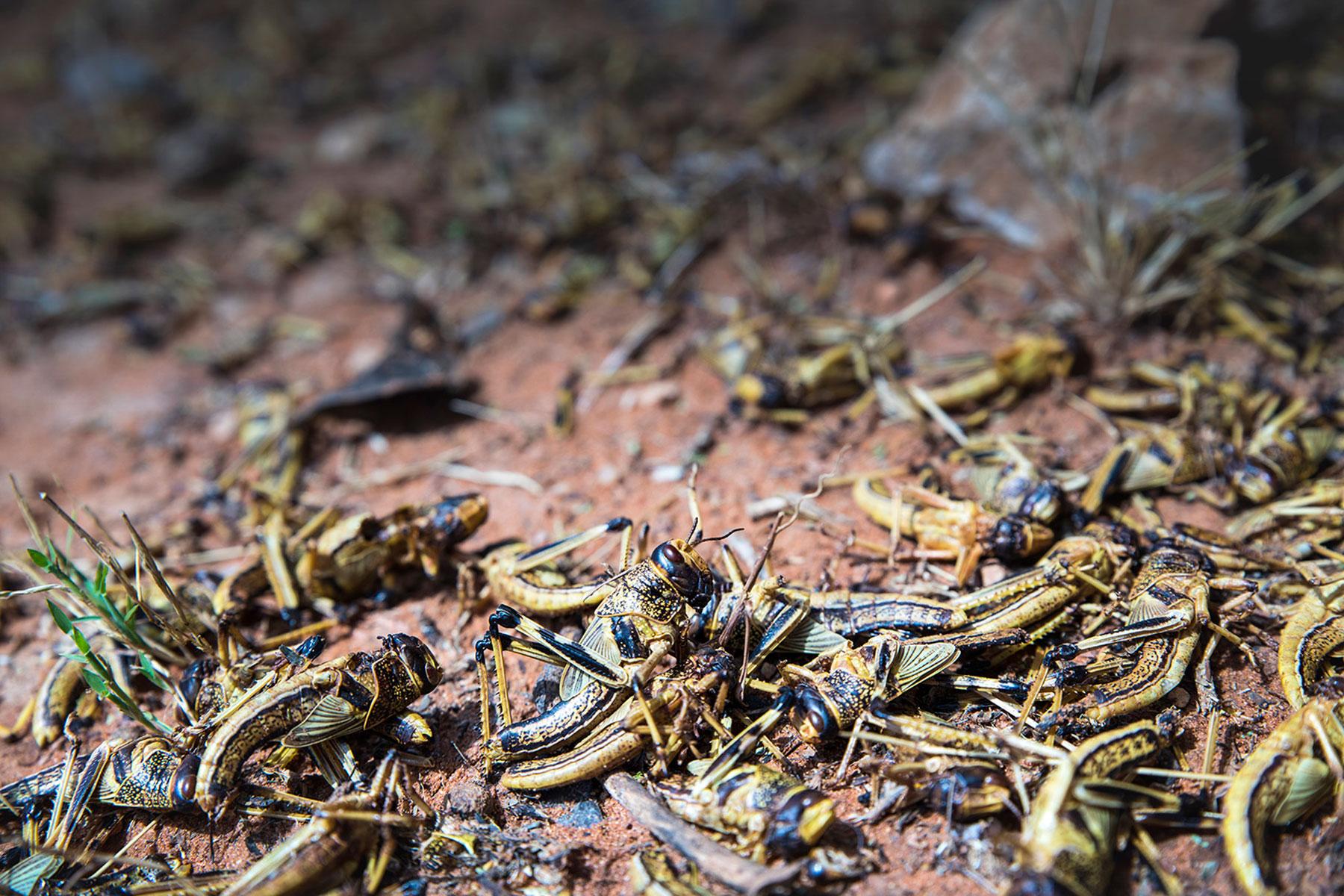
Dead locusts in Shilabo, Ethiopiaâs Somali region, December 2019. Many locust have died as a result of spraying. Photo: FAO/Petterik Wiggers
Recovery and prevention, as new swarms are already breeding
(LWI) - The Lutheran World Federation (LWF) supports people in Ethiopia’s Oromia region, who have been affected by the desert locust infestation this year.
“I had the opportunity to witness the damage caused by the swarm and how it affected the livelihoods of the community in the three woredas (districts),” says Nasir Kedir, the LWF Coordinator for the locust response in Bale zone, a lowland region in Ethiopia’s Oromia district. “In all woredas, more than 80 % of crop and grazing lands were destroyed.”
In the Bale zone alone, the locusts destroyed more than 20,300 hectares of land: grazing land, farmland, and forests. LWF now helps the farmers recover.
Another disaster for vulnerable communities
The photos which the LWF team took in the spring seem to illustrate a locust plague of biblical proportionsthe biblical locust plague in ancient Egypt: Roads covered by little yellow insects, destroyed fields, bushes with bare branches. The government could not spray the entire area with pesticides, Kedir said. Therefore, people were fighting the millions of locusts with their bare hands, waving pieces of cloth and making noise by banging pots, and firing gunshots.
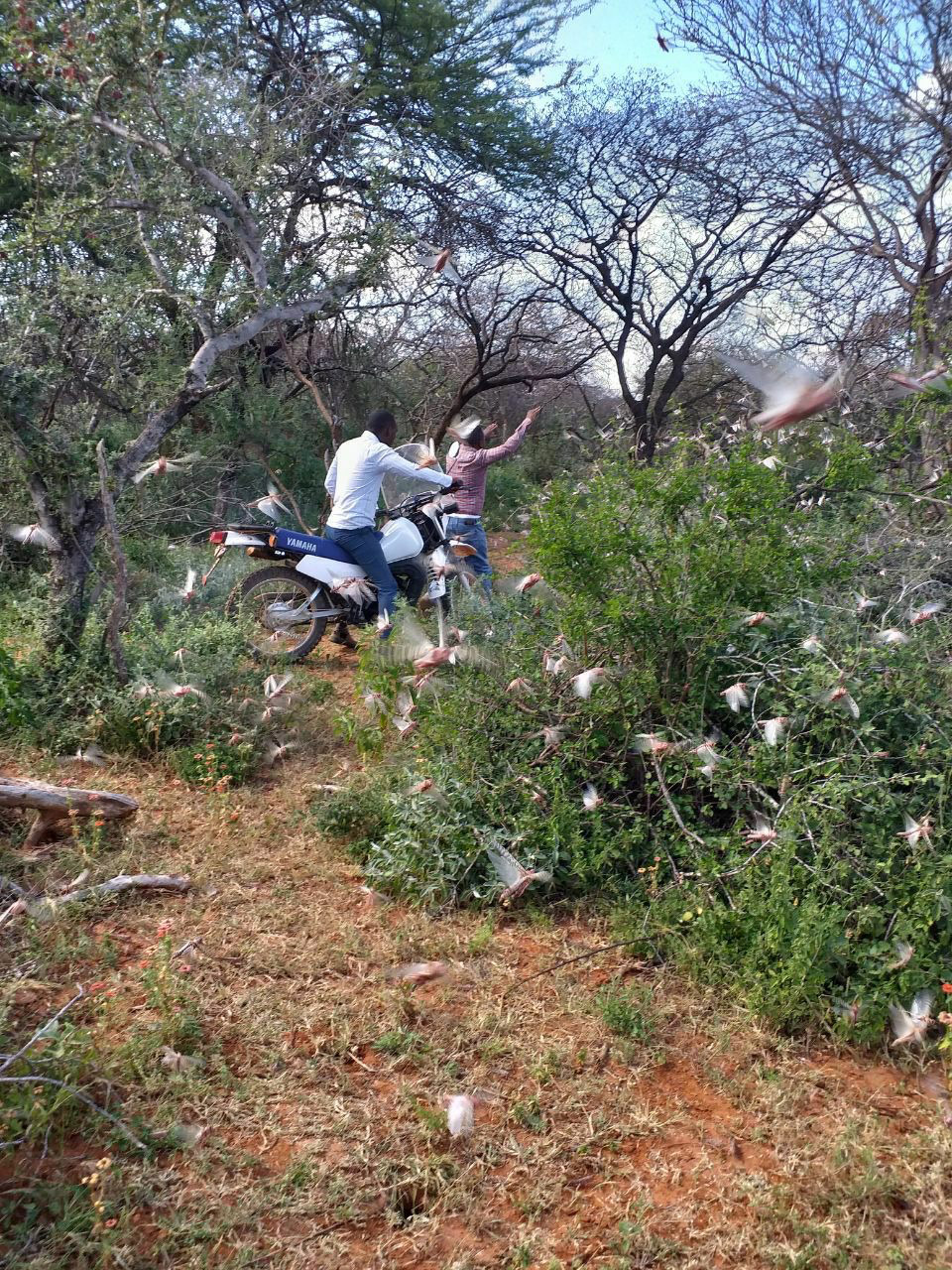
Locals battle the locusts by waving cloth and making noise. Photo: LWF Ethiopia
Aliyi Ahmed is one of the affected farmers. “The locust infestation destroyed our crops, pasture, and rangelands, teff, sorghum, and maize,” he said. Like him, thousands of people lost a season’s harvest and the means to feed their livestock.
The plague hit people in already vulnerable situations, said Sophia Gebreyes, LWF Country Representative in Ethiopia: “The lowland of Bale zone in the Oromia region is inhabited by pastoralist and agro-pastoralist communities who rely on very erratic short rains and where acute food shortage prevails most of the year. The desert locust infestation added another layer to the sum of disasters that have plagued the Bale lowlands.” Civil unrest in Oromia also causes regular restrictions on movement and communication.
Seeds, food, cash grants
LWF with the support of the European Union and the Evangelical Lutheran Church of Wurttemberg, an LWF member church, has set up an emergency response to support farmer families in Bale Zone. 3,000 households, counting about 15,000 people received improved seeds, food for livestock, and cash assistance to recover their livelihoods.
The LWF support helped the pastoralist communities to keep their livestock, which would have starved otherwise. Cash grants helped them to buy necessary items which they would normally pay for with the income from this harvest. “The LWF support protected us from the damage by the locusts by providing us with improved seed and animal feed. As a result, our livestock is in good condition,” Ahmed adds.
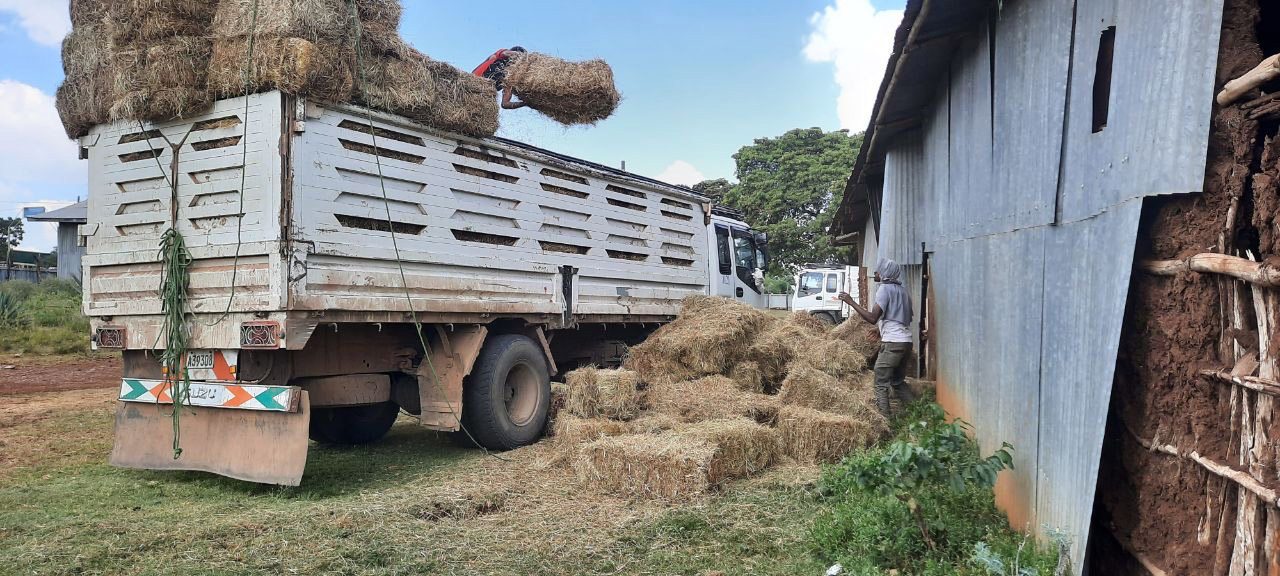
LWF distributed animal feed, seeds and cash grants to the communities most affected by the infestation. Photo: LWF Ethiopia
LWF also conducted trainings for farmers and local administration on dryland crop production, and disaster risk prevention, and awareness sessions about COVID-19. The threat of the pandemic, for many people in the Bale zone, pales in comparison to locusts and droughts.
More support needed
The LWF support is planned until January. For the farmers, life still is precarious. Locusts, drought, and COVID-19 have led to a depreciation of livestock prices, and an increase in prices for crops. As the majority of the communities in Bale are pastoralists, their main source of income has lost value, while they have no longer the means to buy the suddenly very expensive grains.
“We used to buy 25 KG of Teff with 750 birr (20 USD) last year. Now, the price is 1,100 birr (30 USD). For this price, we cannot afford food for our family, and that worries us,” farmer Uhmer Ahmed says. According to the UN Food and Agriculture Association (FAO), an average small farm in Ethiopia has an annual income of about 1,246 USD.
The threat of the locusts is also far from over, as the next swarm is already breeding. FAO in an update from the end of October 2020 classifies the situation in Ethiopia as “high risk” despite good progress in pest control. The danger comes from breeding insects in the Afar and Somali regions, and possible re-infestation from Yemen, where access is very limited and the locusts can breed and form swarms without any control.
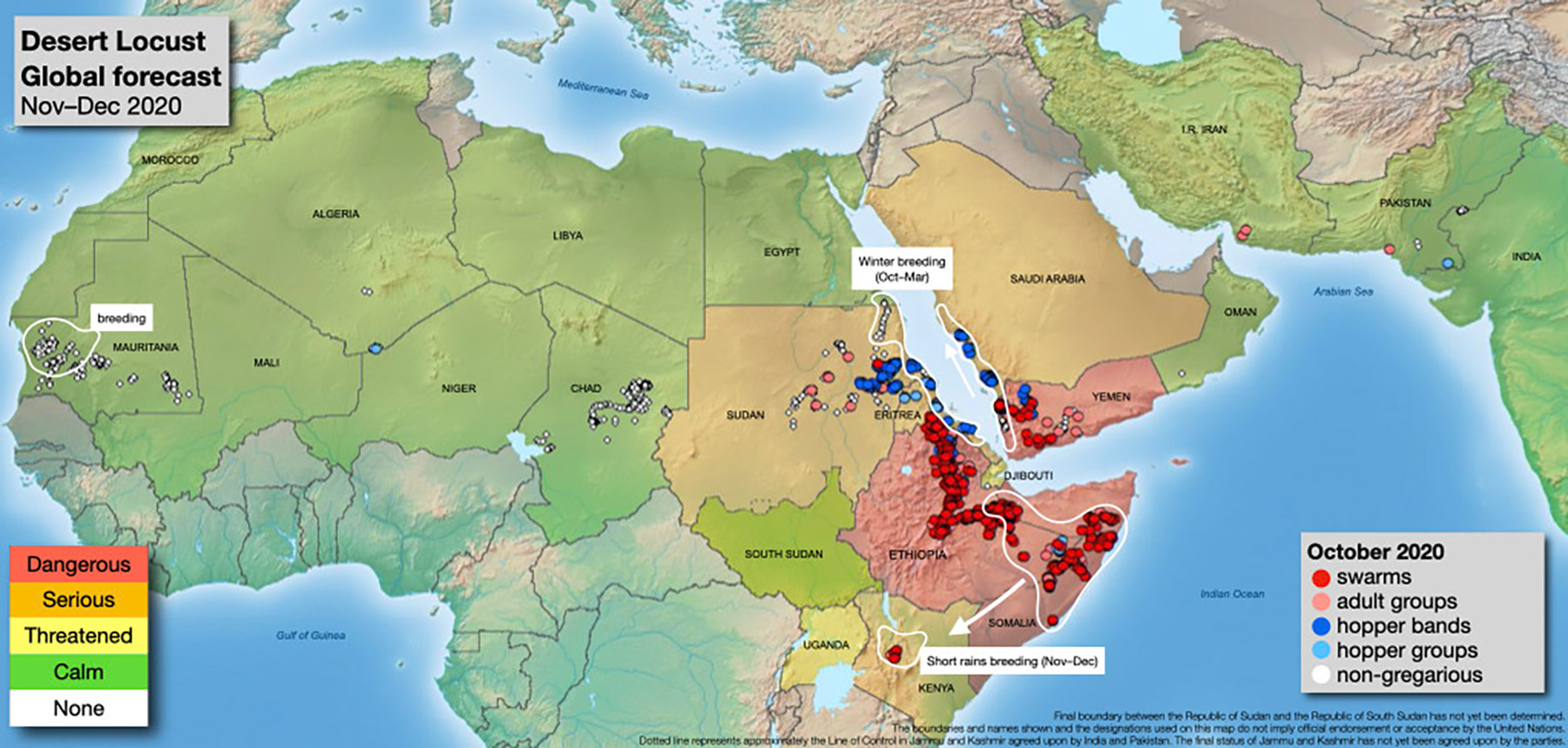
A forecast by the United Nations Food and Agriculture Organization shows the projected development of the locust swarms in November and December 2020. Hoppers are immature locusts, which already cause damage by feeding on greens, but have not formed a swarm to travel long distances yet. Source: Food and Agriculture Organization of the United Nations. Reproduced with permission.
"The new swarms are already affecting some of the areas in the adjacent region of Oromia,” says Endeshaw Mulatu, LWF livelihoods officer in Ethiopia. “The government is trying to control the swarm before it spreads to other areas using chemical spray by plane. However, they probably will not have the means to also cover remote areas like Bale”, he adds.
LWF as part of the Regional Desert Locust Alliance, a group of 48 aid organizations engaged in locust response, is calling upon governments and donors to support preventive measures and the farming communities. ( https://www.lutheranworld.org/news/aid-organizations-call-prevention-next-locust-swarm)
LWF/ C. Kästner
The desert locust emergency response in Ethiopia is funded by together with the Evangelical Lutheran Church in Württemberg, an LWF member church, and the European Union Civil Protection and Humanitarian Operations.
Please support our work with vulnerable communities in Ethiopia. With USD 70, we can enable a family of six to buy the most basic food for a month (please indicate purpose in the donation form).




